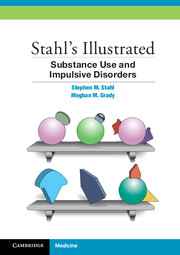Book contents
- Frontmatter
- Preface
- Contents
- CME Information
- Objectives
- Chapter 1 Substance Use and Addiction: An Overview
- Chapter 2 The Neurobiology of Reward and Drug Addiction
- Chapter 3 Alcohol
- Chapter 4 Opioids
- Chapter 5 Nicotine
- Chapter 6 Stimulants
- Chapter 7 Marijuana
- Chapter 8 Other Drugs of Abuse
- Chapter 9 Psychosocial Treatment for Substance Use Disorders
- Chapter 10 Disorders of Impulsivity and Compulsivity
- Summary
- Abbreviations
- References
- Index
- CME: Posttest and Certificate
CME Information
Published online by Cambridge University Press: 05 February 2013
- Frontmatter
- Preface
- Contents
- CME Information
- Objectives
- Chapter 1 Substance Use and Addiction: An Overview
- Chapter 2 The Neurobiology of Reward and Drug Addiction
- Chapter 3 Alcohol
- Chapter 4 Opioids
- Chapter 5 Nicotine
- Chapter 6 Stimulants
- Chapter 7 Marijuana
- Chapter 8 Other Drugs of Abuse
- Chapter 9 Psychosocial Treatment for Substance Use Disorders
- Chapter 10 Disorders of Impulsivity and Compulsivity
- Summary
- Abbreviations
- References
- Index
- CME: Posttest and Certificate
Summary
Overview
In this book, we provide the biological background that will enable the reader to understand not only how chronic drug exposure is thought to alter reward circuitry, but also how currently available treatments for various substance use disorders work in the brain. We also review screening, treatment, and general management strategies for patients with addiction to various substances of abuse. In addition, we briefly touch on impulse control disorders that may have neurobiological similarities to drug addiction.
Target Audience
This activity has been developed for psychiatrists specializing in psychopharmacology. There are no prerequisites. All other health care providers who are interested in psychopharmacology are welcome for advanced study, especially primary care physicians, nurse practitioners, psychologists, and pharmacists.
Statement of Need
The following unmet needs and professional practice gaps regarding substance use were revealed following a critical analysis of activity feedback, expert faculty assessment, literature review, and through new medical knowledge:
• Substance use disorders (SUDs) are associated with significant medical, psychiatric, social, and economic consequences for both the individual and society
• Individuals who abuse and/or are dependent on substances generally need treatment to remit, making active participation of the clinician integral to the patient's successful recovery
• In a 2011 NEI Survey, 40% of respondents indicated a lack of competence in terms of treating alcohol dependence, 26% indicated lack of competence conducting a brief intervention for patients with SUDs, and 35% indicated lack of competence treating patients with SUDs and psychiatric illness
- Type
- Chapter
- Information
- Publisher: Cambridge University PressPrint publication year: 2012



